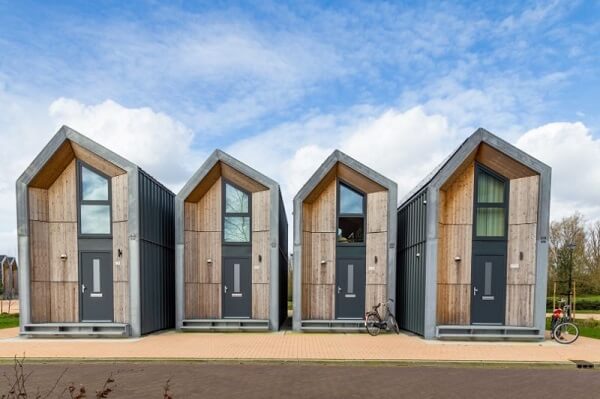
Why would anyone buy a leasehold property? Uncertain whether buying a leasehold home in Canada is the best option for you? Is there any point in buying a leasehold? If so, we have the solutions you require. In Canada, there are several options for purchasing a house. You can get a house, a condo, or a townhouse, depending on your needs and budget. You can also purchase a leasehold property in Canada in some provinces.
Purchasing a home with a leasehold tenure might be difficult, but buying one on a freehold basis is a simple process.
Table of Contents
Furthermore, many people are confused about whether or not they should purchase a leasehold property in Canada because it entails distinct rules and regulations. Is there any point in buying a leasehold? A contemporary luxury home in a residential neighborhood that was custom-built. What happens when a leasehold expires in BC?
We’re going to give you all the information you could possibly need about leasehold ownership today in an effort to facilitate your transition. Now, without further ado, let’s get specific.
Buy a Leasehold Property – It is Less Expensive
Putting up with the questions to answer, why would anyone buy a leasehold property? Let’s do it. Leasehold properties are typically less expensive, though this isn’t always the case.
For example, a lot of young individuals purchase leasehold apartments in order to start climbing the property ladder. For instance, many of the residences sold under the Help to Buy program for first-time buyers are leasehold.
Purchasing apartments is actually more prevalent than purchasing a typical home in larger cities like Toronto etc.
Some people wish to downsize to a smaller home after divorcing or splitting up. The same is true for senior citizens who wish to avoid the additional expenses and problems associated with being solely responsible for the upkeep of a home. For people who work in urban areas, owning leasehold properties is also typical in order to reduce commuting times.
What Distinguishes A Leasehold Property From A Freehold Property?
Ownership comes in two flavors: leasehold and freehold.
Leasing a house or apartment (on the land) for a predetermined amount of time is known as a leasehold. But only the land’s owner/freeholder is the rightful owner. For the term of the lease, the owner of the apartment or house has leasehold ownership; they do not own the land.
Conversely, freehold entails owning both the ground on which the building is situated and the property itself, such as a building or house. In contrast to leasehold ownership, freehold ownership has no term limit on ownership because the land is owned by the same person.
Freehold ownership is the superior option between the two. It’s because there are no ownership or lease renewal concerns for the buyer to worry about in this situation.
Is There Any Point In Buying A Leasehold? Importance
Brighter side of Why would anyone buy a leasehold property? Purchasing leasehold real estate has many advantages for real estate investors. You might be able to buy and rent out several leasehold properties rather than just one freehold property because leasehold properties are typically less expensive than freehold properties. This will increase your rental income and guarantee that you continue to make money even if one property is unoccupied for a while. Furthermore, leasehold properties are frequently apartments, which are more well-liked by a variety of tenants since they are typically more affordable and situated in superior neighborhoods.
Moreover, decision to purchase a leasehold property hinges on various factors, each carrying its own significance. While leasehold arrangements grant temporary ownership rights to the buyer, typically for a fixed period, they also come with certain considerations. Firstly, location plays a pivotal role; in sought-after areas where freehold properties are scarce, leaseholds may offer an entry point into the market. Additionally, leaseholds often include maintenance and management services, alleviating some responsibilities from the homeowner. However, it’s crucial to evaluate the lease length and any associated ground rent and service charges, as these can escalate over time, impacting long-term affordability. Furthermore, leasehold properties may face restrictions on alterations or subletting, limiting the homeowner’s autonomy. Ultimately, the decision to buy a leasehold necessitates a thorough assessment of the property’s terms, financial implications, and personal preferences to determine its suitability and importance in meeting one’s housing needs.
Further Reflecting On Is There Any Point In Buying A Leasehold?

Climbing the Ladder of Property
Why would anyone buy a leasehold property? Leasehold properties provide an alternative for people who want to purchase a home but find freehold properties to be a bit too expensive. Due to the fact that they are typically flats rather than freehold properties, they are frequently less expensive up front and have fewer ongoing expenses like Stamp Duty and Land Registry fees.
Shared ownership leasing alternatives are also available for certain leasehold properties. This implies that a tenant may buy a portion of a building and then pay rent on the portion of the building that the landlord still owns. The lessee has the option to purchase more shares of the property over time, eventually becoming the sole owner.
For people who are struggling to buy or are first-time buyers on a tighter budget, either of these possibilities might be a game-changer.
Point In Buying A Leasehold Property :It Has a Community Spirit Scent
It’s common to feel a sense of community when residing in a leasehold property. You may be able to use common areas such as parking lots, coworking spaces, gardens, gyms, and community lounges. Thus, buying a leasehold property does have a point and can occasionally mean acquiring more than simply a place to live—a perk that appeals to certain people—like having a piece of a community.
What Happens When A Leasehold Expires In BC?
Tenants will have to vacate at the end of the lease if it is not renewed. The landowner is required by some, but not all, lease agreements to give the tenants the building’s fair market value, which is usually very little because the majority of the building’s value is in the land.
Related Articles
- How Long Do You Have to Transfer Property After Death?
- When is HST Applicable on Property Sale in Ontario?
- What is a Real Property Report?

My name is Adnan Khan and I am a realtor specializing in Pre-construction condos and homes sales.
I also do assignments of condos. You can contact me at 416-897-4714
Designation: P.Eng
Education: McMaster University, Engineering Technology
Specialty: Residential Real Estate
Experience: 15+
Area Covered: Downtown Toronto and Neighboring Area
Languages Spoken: English, Urdu





Leave a Reply